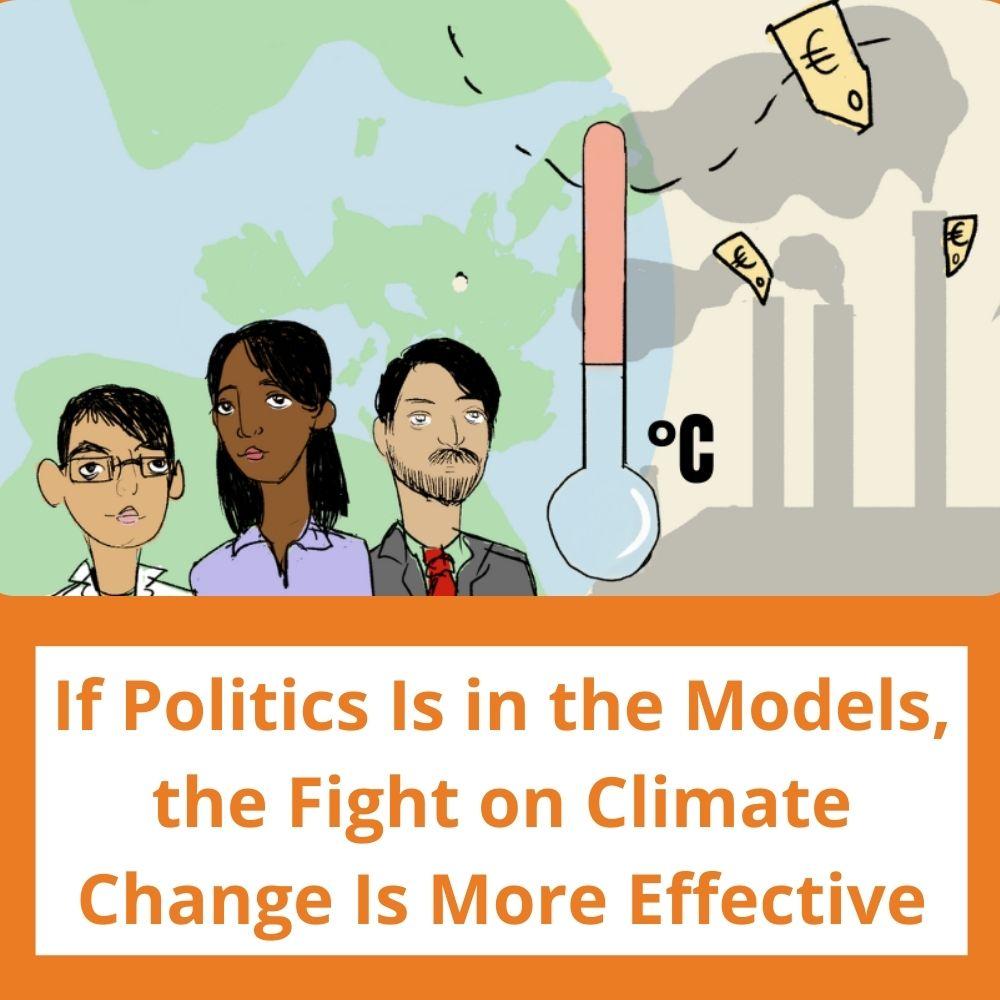
As Voters Feel the Heat, Support for European Green Parties Increases
Climatologists reckon that the series of heatwaves in Europe since 2015 has been the most extreme in the past 2,110 years. In parallel with the increasing frequency and intensity of extreme climate events, the past few years have seen a surge in climate change protests and in the vote for Green parties, especially in the last European Parliamentary elections in 2019.
Research recently published in Nature Climate Change by Roman Hoffmann, Jonas Peisker (International Institute of Applied System Analysis, IIASA at the University of Vienna), Raya Muttarak (University of Bologna and IIASA), and Piero Stanig (Bocconi) shows for the first time a causal effect of local climate extremes on environmental concern and on support for Green parties in Europe.
"In detail," Professor Stanig says, "we find a sizeable effect of climate experiences on voting behavior, which runs through increased level of concern about the environment." Environmental concern in 34 countries is measured with Eurobarometer data from 42 survey waves (2002-2019), support for Green parties in 28 countries with European Parliament election data (7 elections, 1990-2019).
Such an apparently intuitive relation, though, is much more nuanced than expected, with the kind of climate extreme, baseline local climate and local economic conditions entering the framework.




Not all climate extremes are born equal, to begin with. Even if climatologist recognize both positive and negative temperature anomalies as signs of a changing climate, only positive temperature anomalies, heat waves and dry spells (droughts) affect voters' concern and behavior. According to the estimates, if a region experiences twice as many unusually warm days than average, environmental concern is expected to increase by 1.3 percentage points and Green voting by 1.2 percentage points. No consistent influence is found for negative temperature anomalies, cold episodes and wet spells.
Furthermore, climate extremes have a consistently stronger effect on concerns and voting in regions with a temperate and colder climate compared to areas with a warm, arid climate in the Mediterranean regions, for which no significant effects are found. "Changes in concerns and voting are mainly driven by positive temperature and heat extremes, primarily in regions with an Atlantic or Continental climate," Prof. Stanig summarizes.
Finally, the effects of exposure to climatic extremes on environmental concerns and voting are lower in regions with overall worse economic conditions. Such differences persist not only between countries, but also within countries, with wealthier regions responding more strongly to the exposure to climate extremes. Across Europe, the effects of experiences on concerns and voting outcomes appear to be particularly pronounced in urban centers, with their relatively wealthier populations.
The results come with important policy implications, such as the urge to communicate the effects of a future warmer climate and its impacts for local populations in Europe in a clear and accessible manner, and the need to make the most of periods of roaring economic growth, since the environment can be given a lower priority when the cycle is weak.
Hoffmann, R., Muttarak, R., Peisker, J., Stanig, P. (2022). "Climate change experiences raise environmental concerns and promote green voting." Nat. Clim. Chang. 12, 148–155 (2022). DOI: https://doi.org/10.1038/s41558-021-01263-8.